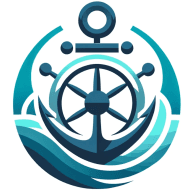6 Things I Wish I Knew When Starting in the Maritime Supply Chain Industry
The maritime supply chain industry is a complex and ever-evolving field that demands expertise and adaptability. Navigating this challenging landscape requires a deep understanding of key factors that can make or break success in the industry. From prioritizing supply chain visibility to embracing sustainability and strengthening cybersecurity, there are crucial lessons that can propel newcomers towards a thriving career in maritime logistics.
- Prioritize Supply Chain Visibility for Success
- Leverage Data Analytics for Smarter Decisions
- Embrace Sustainability to Gain Competitive Edge
- Strengthen Cybersecurity to Protect Maritime Operations
- Foster Collaboration Among Maritime Stakeholders
- Commit to Regulatory Compliance Through Continuous Learning
Prioritize Supply Chain Visibility for Success
Looking back on my journey in maritime logistics, I wish I had understood the critical importance of supply chain visibility from day one. When I started, I was focused on operational efficiency and cost reduction, but I didn't fully grasp how transformative true end-to-end visibility could be.
My advice to my younger self? Invest in transparency early. I've seen countless eCommerce brands struggle unnecessarily because they couldn't track inventory across complex maritime routes or communicate effectively with their logistics partners. This creates ripple effects – delayed shipments, frustrated customers, and wasted resources troubleshooting preventable issues.
One experience that really drove this home was working with a mid-sized retailer who was hemorrhaging money on expedited shipping to compensate for blind spots in their supply chain. Once we implemented proper visibility tools and matched them with a 3PL that prioritized transparent communication, their logistics costs dropped by 22% while delivery times improved.
The maritime supply chain is inherently complex – spanning oceans, crossing borders, and involving numerous stakeholders. What separates successful operations from struggling ones isn't just efficiency; it's the ability to see potential disruptions before they become crises.
If you're building a logistics network today, prioritize partners who embrace transparency and invest in technology that connects every link in your chain. And remember that resilience isn't about avoiding disruptions entirely – it's about having the visibility to adapt quickly when they inevitably occur.
The companies that thrive don't just move products efficiently; they move information proactively. That's something I wish I'd known from the beginning, and it's the foundation of how we approach partnerships at Fulfill.com today.
Leverage Data Analytics for Smarter Decisions
Data analytics has become a game-changer in the maritime supply chain industry. By analyzing vast amounts of information, companies can make smarter choices about shipping routes, inventory management, and resource allocation. This technology helps predict potential issues before they arise, allowing for proactive problem-solving.
Improved efficiency and cost savings are direct results of implementing data analytics in maritime logistics. The insights gained from data analysis can lead to better customer service and increased competitiveness in the market. To stay ahead in the industry, it's crucial to invest in data analytics tools and training for staff.
Embrace Sustainability to Gain Competitive Edge
Sustainability is no longer just a buzzword but a driving force for innovation in the maritime supply chain. Companies that prioritize eco-friendly practices often gain a competitive edge in the market. This focus on sustainability leads to the development of new technologies and methods that reduce environmental impact while improving operational efficiency.
From cleaner fuels to more efficient ship designs, sustainable practices are reshaping the industry. These efforts not only benefit the environment but also often result in long-term cost savings for businesses. It's time for all players in the maritime supply chain to embrace sustainability and contribute to a greener future.
Strengthen Cybersecurity to Protect Maritime Operations
Cybersecurity has become a top priority in protecting maritime operations from digital threats. As shipping companies increasingly rely on technology, the risk of cyber attacks grows, potentially disrupting global trade. A single security breach can lead to significant financial losses, damage to reputation, and compromised safety of crew and cargo.
Implementing robust cybersecurity measures is essential to safeguard sensitive data and maintain the integrity of maritime systems. Regular security audits and staff training are crucial components of an effective cybersecurity strategy. Don't wait for a breach to occur; take action now to strengthen your maritime cybersecurity defenses.
Foster Collaboration Among Maritime Stakeholders
Collaboration among various stakeholders is key to enhancing the overall efficiency of the maritime supply chain. When shipping companies, port authorities, customs officials, and logistics providers work together, they can streamline processes and reduce delays. This cooperative approach leads to better resource utilization and improved customer satisfaction.
Sharing information and best practices across the industry can spark innovation and solve common challenges more effectively. Building strong partnerships and open lines of communication throughout the supply chain is essential for success. Start fostering collaborative relationships today to unlock the full potential of your maritime supply chain operations.
Commit to Regulatory Compliance Through Continuous Learning
The complexity of regulatory compliance in the maritime industry requires a commitment to continuous learning and adaptation. Regulations governing international shipping are constantly evolving, covering areas such as safety, environmental protection, and labor standards. Staying up-to-date with these changes is crucial to avoid penalties and maintain smooth operations.
Companies that prioritize compliance often find themselves better prepared for future regulatory shifts and industry challenges. Investing in regular training programs and staying connected with industry associations can help navigate the complex regulatory landscape. Make it a priority to establish a culture of compliance within your organization to ensure long-term success in the maritime supply chain industry.


